Bracing Shopping Centers with Facial Recognition for Post-COVID World
Sanam Malhotra | 11th June 2020
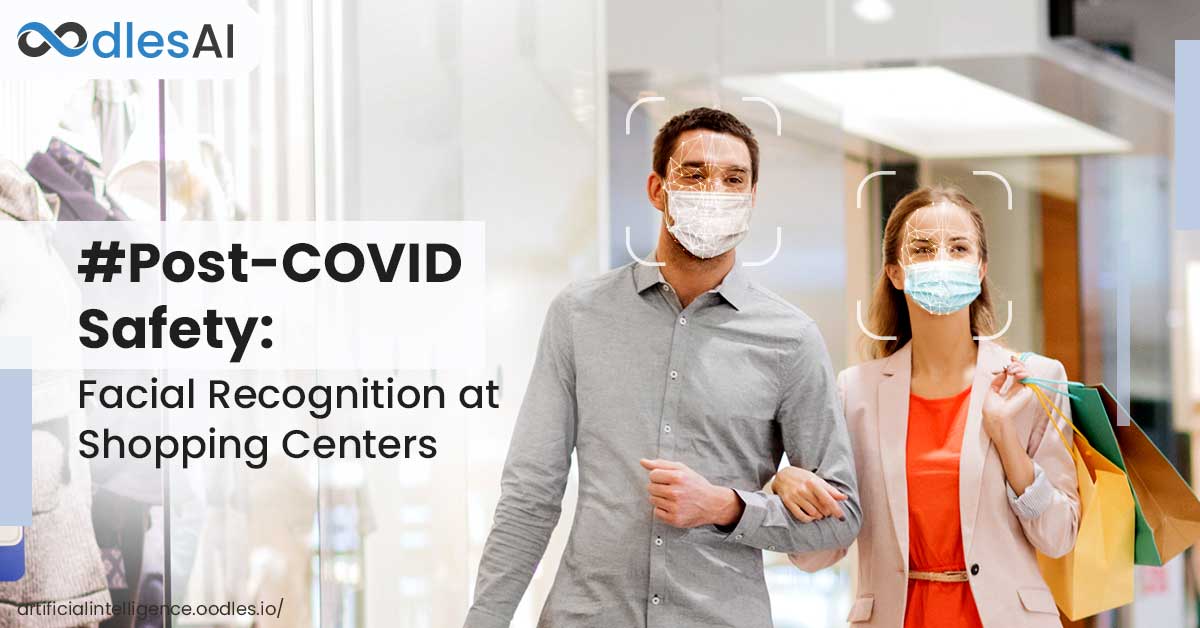
As global and local retail companies grapple with post-COVID safety measures, artificial intelligence (AI) is preparing to restore normalcy with resilience. The idea is to brace up public places including malls, airports, railway stations, et al with AI-driven facial recognition systems. By equipping shopping centers with facial recognition technology, authorities can track the enforcement of precautionary measures and protect customers with real-time insights.
Let’s take a closer look at the state of the COVID-stricken retail industry and how AI development services are proving an antidote to business challenges.
#Post-COVID: AI To Navigate Retail Future
While markets are gradually seeing the light of day, business continuity challenges are still looming over the retail and F & B industries. In the wake of perennial community-spread risk, retail stores, especially shopping centers, and malls must adopt advanced technologies to ensure customer safety.
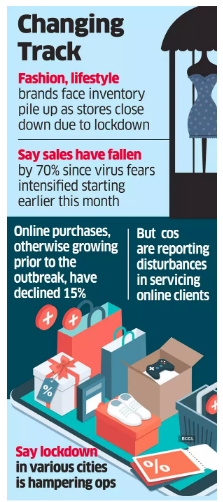
The Economic Times reports a steep decline in brand sales along with hampered operations across shopping centers.
Artificial intelligence and its analytics capabilities are offering unique solutions to retail safety concerns while lowering costs and improving operational efficiency.
Deep learning and machine learning development is emerging as a panacea for addressing immediate business challenges, such as-
a) Ensuring workforce and customer safety on the shop floor
b) Enforcing precautionary measures at all stores
c) Tracing potential COVID-19 contacts, and
d) Receiving real-time updates and insights about the virus spread.
Since tracking customer movements with basic CCTV footage requires human efforts, shop owners are turning to AI for strengthening protection. A large number of retailers and mall authorities are equipping shopping centers with facial recognition systems to ensure workforce and customer safety effectively.
Read on to find out how AI is progressing toward a safer and more conscious shopping experience.
Significance of Bracing Shopping Centers With Facial Recognition Systems
1) Vigilant Enforcement of Precautionary Measures
The first step to ensure optimum safety on the shop floor by keeping a vigilant track of customers and the workforce during shopping hours. With AI’s computer vision technology, facial recognition models can be trained for-
a) Identifying people without masks and alerting authorities
b) Enforcing physical distancing of minimum 6 feet, and
c) Keeping adjacent seats vacant at food courts
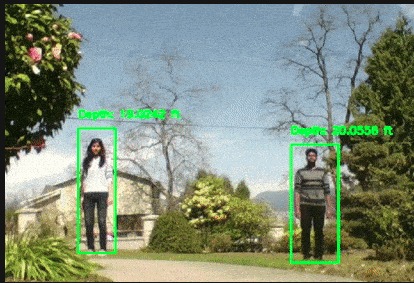
A facial recognition system in action to detect the physical distance between individuals, source GitHub.
Deep learning is the underlying technology that powers shopping centers with facial recognition systems that can strengthen the enforcement of COVID-19 measures. With intensive historical data, these models can be trained to frame individuals violating safety norms with minimum efforts and maximum accuracy.
Also read- Harnessing Computer Vision for Social Distancing Amidst COVID-19
2) Contactless Temperature Scanning
Thermal sensors are witnessing a sharp spike in demand amid coronavirus fears to screen customers and workers at entry points. Not only shopping centers, but the technology is becoming an essential weapon to detect people at airports, corporate offices, railway stations, etc.
While contactless thermal scanning gun devices are handy, they completely rely on human control and functioning. In contrast, AI-led thermal scanners installed within CCTV cameras or other IoT sensors can facilitate contactless customer screening effortlessly.

A GitHub contributor demonstrates how we can fully scan human body temperature with a thermal camera connected with a Raspberry Pi computer. Portable and accurate, the device can be placed at entry points of malls, airports, and railway stations to screen individuals.
Also read- Keeping Businesses Afloat With AI During COVID-19 Crisis
3) Real-time insights and contact tracing
Considering the highly contagious nature of the COVID-19 virus, it is crucial for retailers to stay well-informed about suspected COVID contacts. To equip retailers and authorities with real-time coronavirus insights, AI puts its data-processing capabilities to use.
An AI-infused COVID-19 tracking system applies machine learning algorithms to map all the devices that came in contact with a reportedly positive patient.
For this, AI uses the home and office address of the Corona-positive individual. It then traces all the devices that came in close proximity to the said location for the last 14 days.
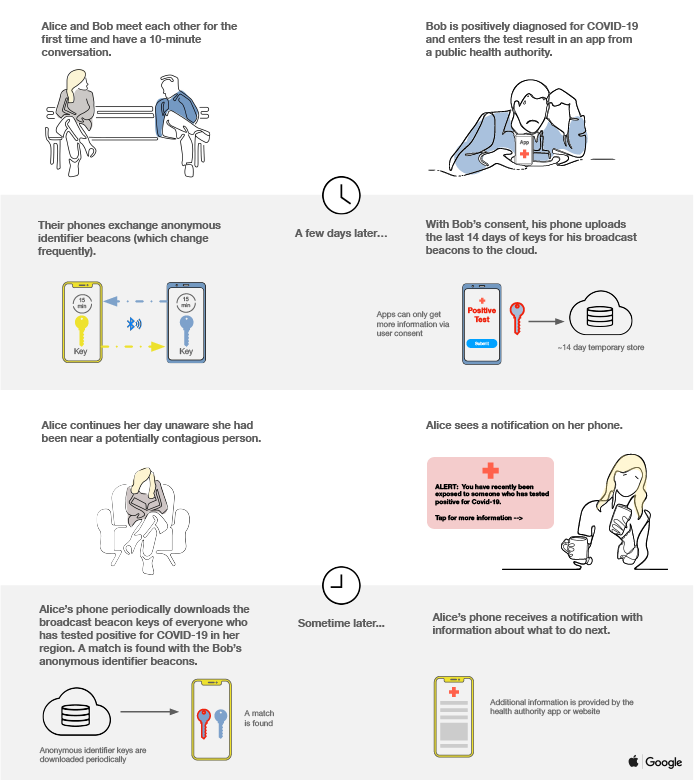
A digital contact tracing pipeline explained by Google and MIT researchers.
In addition to contact screening, shaping centers with facial recognition systems can also receive real-time insights and analytics around potential contacts. The systems can alert authorities to take necessary actions once there are any suspected infectious patients found on the premises.
Also Read- AI-powered Digital Marketing Tools For Post-COVID Business Revival
Oodles AI: Preparing Shopping Centers With AI-driven Facial Recognition Technology
These testing times call for resilience and reimagination of the new normal for the collective safety of workers, customers, and suppliers. At Oodles, we are constantly making efforts to brace up global businesses with AI-driven solutions and insights. Our AI development team is steadily building and deploying AI technologies to optimize business operations in the post-COVID world.
As for facial recognition applications amid COVID-19 outbreak, our capabilities encompass-
a) Training AI models with rich datasets to achieve over 95% detection accuracy
b) Contactless thermal scanning with Raspberry Pi and IoT devices.
c) Facial recognition embedded in CCTV footage for corporate offices, shopping centers, airports, and railway stations.
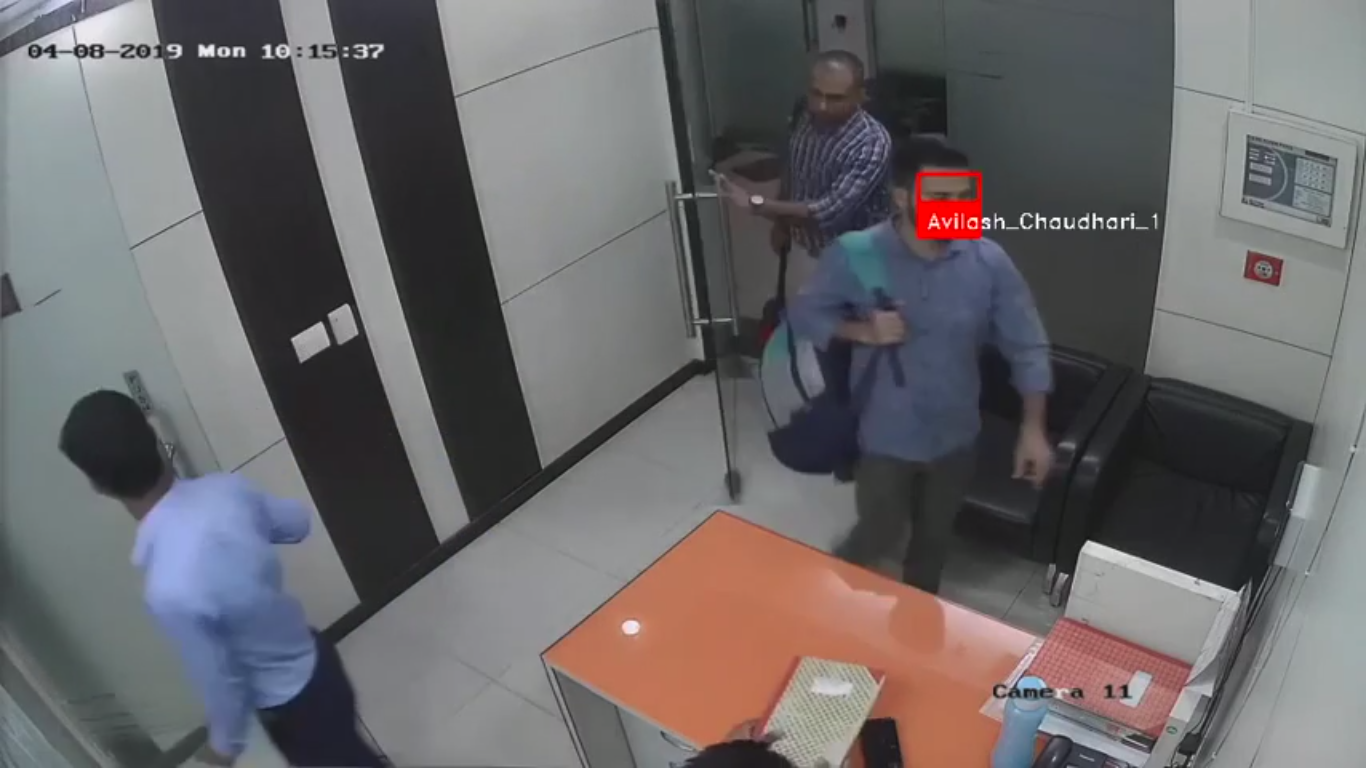
Here is a screengrab of the facial recognition system installed at one of our corporate offices to automate employee attendance.
In addition, our AI team is contributing to the fight against coronavirus with AI-powered diagnostic chatbots for the remote screening of patients via smartphones.
Join forces with our AI development team to know more about our AI capabilities to restore business growth post-COVID.



